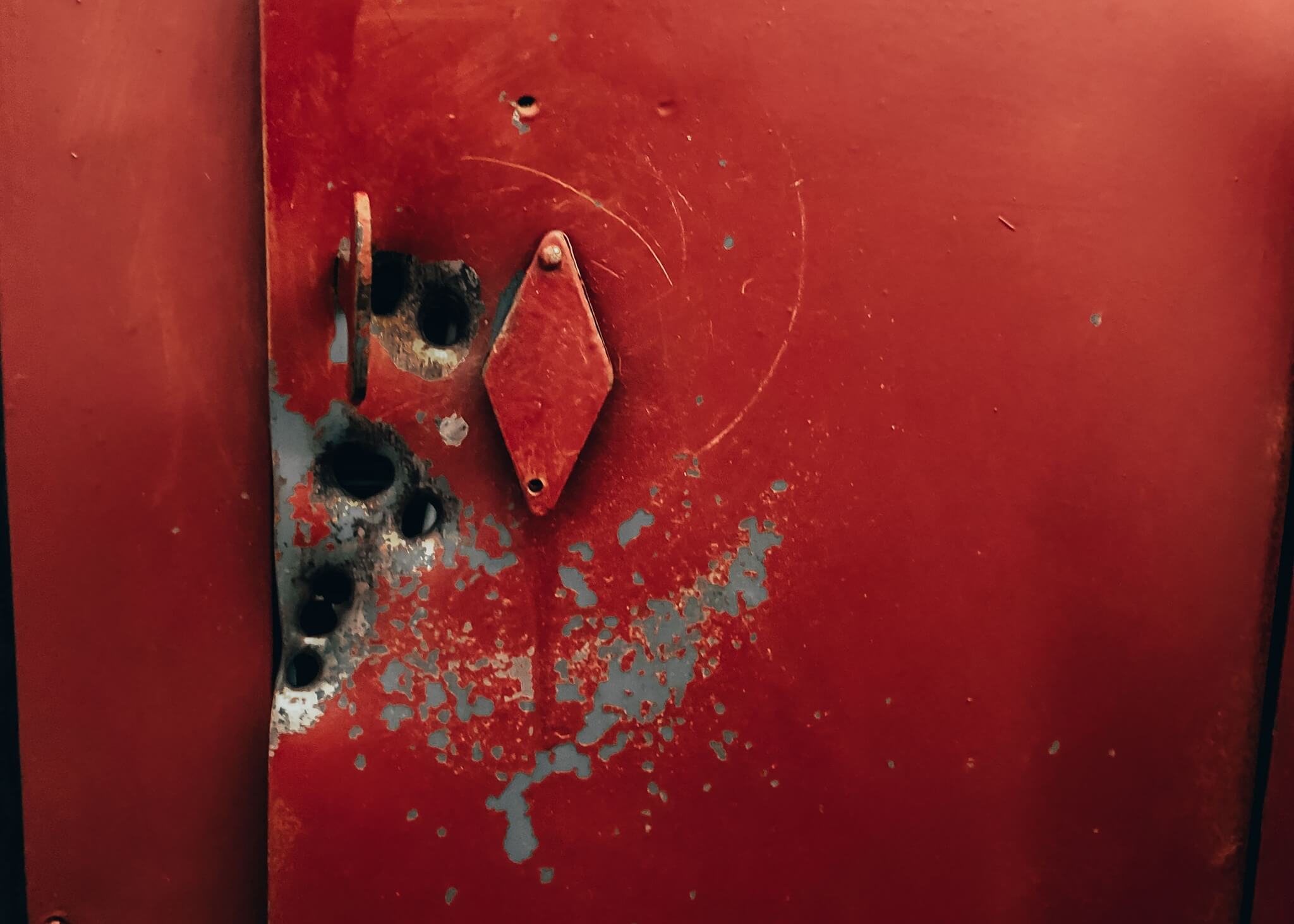[from Marie]
Invisible stains.
We climb the stairs of Ira’s house. It was her pride – the only house in the street with three stories, even a small balcony to overlook the village and the fields. Her pride turned into her nightmare on the day the Russians came. The house with the best sunset view turned into a fortress for Russian occupants. Snipers used the balcony and the upper floor to seek out innocent targets. Ira and her family were exiled into the freezing cold basement.
The home built to host a big family was turned into the invader’s stronghold.Ira’s village was liberated, but the occupation left its mark.
We are surprised to see her son putting up new tapestries and flooring, seeing the windows remain shattered. ‘The windows can wait. But I don’t want to see this anymore’, says Ira, and points to blood stains all over the floor and the walls. ‘No matter how much I scrub, they won’t go away.’
It is scary to imagine what happened in this house. Ira and her family heard the sounds of the occupiers as they were enduring long days in the basement. Like hearing only the audio of a movie without seeing any images. Guessing to fill in the gaps. Ultimately taking their chance and fleeing. And now trying to overpaint what remains of the occupation.
It reminds me of a basic principle in physics: The law of conservation of energy. It states that energy can neither be created nor destroyed – only converted from one form of energy to another. It was first described by French mathematician Émilie du Châtelet and further developed by Albert Einstein.
Sooner or later all blood stains will be painted over. All shattered windows replaced. But what then? It is foolish to believe happiness returns with an intact house. Or peace of mind with peace on the streets.
Truth be told; these de-occupied places feel very heavy. Seeing bullet holes in schools feels heavy. We can reconstruct, we can overpaint. But something of this evil presence stays and you can feel it dauntingly.
The Old Testament worldview describes the concept of ‘sin’ according to the law of conservation of energy. Sin cannot be removed. It can only be transferred from one object to another. This is best seen in the concept of atonement we find in the book of Leviticus: Sins are confessed over the scapegoat, which is then sent into the wilderness to wander and ultimately die. Sin is not destroyed; it is merely transferred from God’s camp into the wilderness.
The cross is the first and only place where sin is dealt with. Sin is judged in the death of Christ on the cross. We overcome sin’s power over us only by faith in His resurrection.
I believe sin is real, I believe evil is real. I have looked it in the eye more than ever these last six months. It is easy to recognize it in the blood stains of innocent victims on the tapestry. Those are easy to see and deal with. But what about the evil that creeps in so unrecognized into our pretty homes? The hard words we say to each other, the gossip, the jealousy, the greed, and sensuality?
Sometimes it is easier to deal with visible stains than with those that are not visible to the eye.

